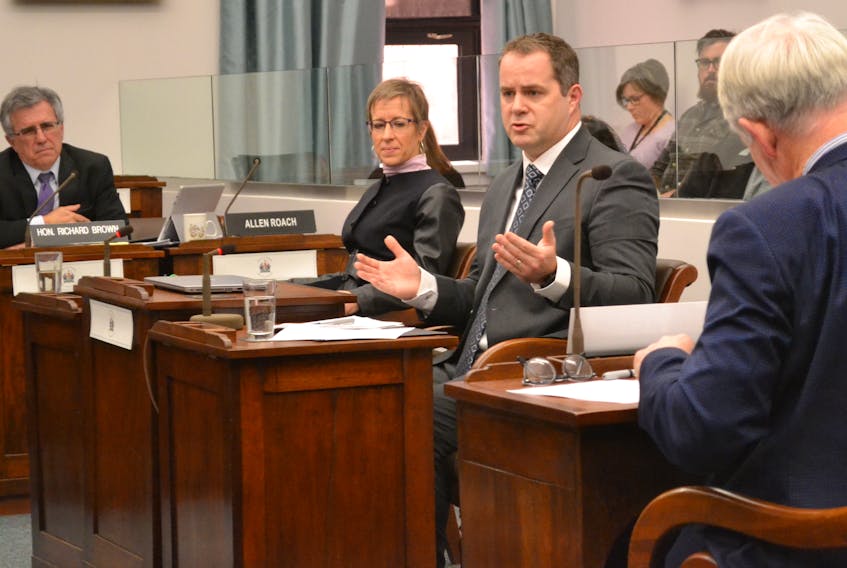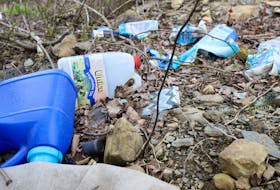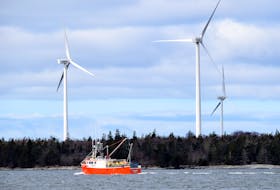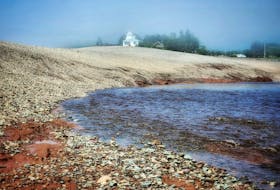CHARLOTTETOWN, P.E.I. — A facility that pumps up to 90 million litres of treated effluent into the Northumberland Strait daily is an issue for Atlantic Canada, not just Nova Scotia.
That’s one of the concerns MLA Darlene Compton raised for representatives from Environment and Climate Change Canada when they met with the Island’s standing committee on agriculture and fisheries on Friday.
Compton said a federal environmental assessment should be done before Northern Pulp in Nova Scotia builds a $130-million treatment facility and pipeline which will take effluent from the Abercrombie pulp mill into the Northumberland Strait.
“To leave the assessment being done to the province of Nova Scotia, when we know they’re on the hook for the effluent, to me is a conflict,” said Compton. “It’s affecting all the Atlantic provinces, not just Nova Scotia.”
The representatives met with the committee to brief the members about the federal regulations of effluent release in waterways.
All committee members took the time to address the need for a federal environmental assessment during a question period. A provincial assessment will be done by Nova Scotia, but a federal assessment has not been approved.
Currently, Northern Pulp uses a lagoon treatment system at Boat Harbour but must stop by a Jan. 31, 2020, deadline. As a result, Boat Harbour has endured roughly 50 years of high pollution.
MLA Allen Roach said it is difficult to disregard what has happened with Northern Pulp and the environment in the past.
“Knowing that this company has caused all of that disaster to take place… how can the people of Nova Scotia and Prince Edward Island have confidence that Northern Pulp are going to do anything different that’s going to avoid the disaster that was already created,” he said.
“Any study, whether it be for lobster or it be for other species itself, would have to be one that a – is scientifically inheritable and b – with the right parametres with the right organization with the right people."
-Geoff Mercer
Environmental Regulations for pulp and paper are standard across Canada, said Caroline Blais, director of forest products and fisheries act.
Regulations were first implemented in 1992.
Blais said Northern Pulp has complied with regulations.
“For the last 10 years, they have been compliant with all of the effluent standards,” said Blais, who added that 70 per cent of studies from mills across the country show an effect on fish and or fish habitat, which prompted modernizing regulations in 2017.
Blais said one of the ways to test for the effluent’s effect on fish and marine life is to test it with rainbow trout.
MLA Jamie Fox said that does not cover the effects to lobster or other marine life fished by Maritimers.
He said the most recent study of that nature was done in 1960.
Geoff Mercer, regional director general of Atlantic and Quebec regions, said he could not give a yes or no answer on if a new study would be done on lobster but said it would be a complex process.
“Any study, whether it be for lobster or it be for other species itself, would have to be one that a – is scientifically inheritable and b – with the right parametres with the right organization with the right people,” he said.
Mercer said he will pass the messages of a federal environmental assessment along to federal Environment and Climate Change Minister Catherine McKenna.
Other concerns raised during the meeting included how effluent temperature affect fish and the possibility of new technologies to improve environmental impact.
RELATED









